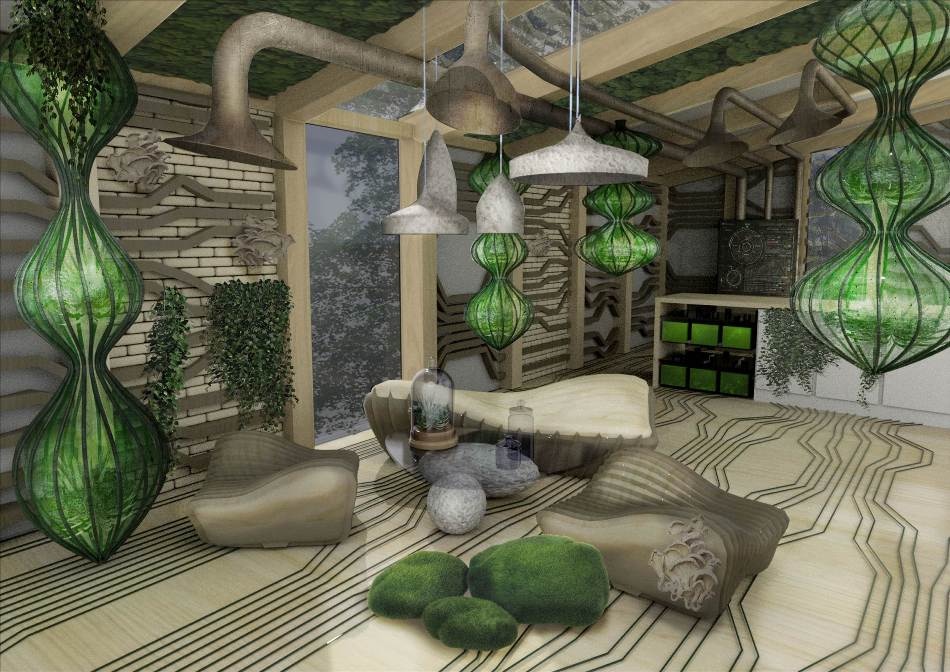Jun 20 2019
Newcastle University and Northumbria University have been mutually awarded £8 million from Research England’s Expanding Excellence in England fund to set up the first research Hub in the world for Biotechnology in the Built Environment (HBBE). It will pave the path towards a whole new concept of the way humans design and build buildings.
 A concept image for The OME. (Image credit: Newcastle University)
A concept image for The OME. (Image credit: Newcastle University)
Its purpose is to develop a new generation of “Living Buildings”, which are responsive to the natural environment, developed using living engineered materials, which process their own waste, produce energy, decrease pollution, and support a biological environment that is advantageous to health.
This is incredibly exciting opportunity to create a new field of research. By bringing together architects, engineers and bio-scientists, working with industry and investing in state-of-the-art facilities we are aiming to rethink the building industry.
Dr Martyn Dade-Robertson, Hub Co-Director and Reader in Design Computation, School of Architecture, Planning and Landscape, Newcastle University
We want to use the very latest biotechnologies to create living homes that are responsive to, and protective of their environment and the people who live in them. The current construction of buildings is unsustainable due to its carbon footprint, the hope would be to use this model in housing in the future.
Gary Black, Professor in Protein Biochemistry and Hub Co-Director, Northumbria University
Universities and Science Minister Chris Skidmore said: “Pushing the boundaries of knowledge and conquering new innovations are what our universities are known for the world over. This programme led by Newcastle and Northumbria Universities, will look to create a new generation of homes and offices that consume their own waste and are healthier for people using them.
“The Expanding Excellence in England Fund will support projects throughout England to master new and developing areas of research and industry.
“Made possible through our record R&D spend delivered by our modern Industrial Strategy, the investment will support researchers to develop solutions and opportunities for UK researchers and businesses.”
The HBBE will create new microbial technologies which will serve as a metabolism, processing a building’s waste and producing energy. The hub will develop living materials, using microbes, and examine how healthy environments can be created by properly comprehending the way the microbiome of the built environment and humans interrelate.
The new hub will contain The OME, an experimental biological house, which will be erected on the campus of Newcastle University. A living lab, the OME will be used as an experimental unit to test and highlight the hub’s revolutionary research.
The HBBE will also include a Micro-Design Lab, based at Northumbria University and a Macro Bio-Design Lab at Newcastle University, which will enable the researchers to create new technologies spanning from molecules up to buildings.
The HBBE will officially open on August 1st, 2019. It is presently hiring 22 new staff and will be guided by a multidisciplinary team across both Universities; Dr Martyn Dade-Robertson (NCL), Professor Rachel Armstrong (NCL) Professor Gary Black (NU), Dr Ben Bridgens (NCL), Dr Meng Zhang (NU), and Dr Darren Smith (NU).